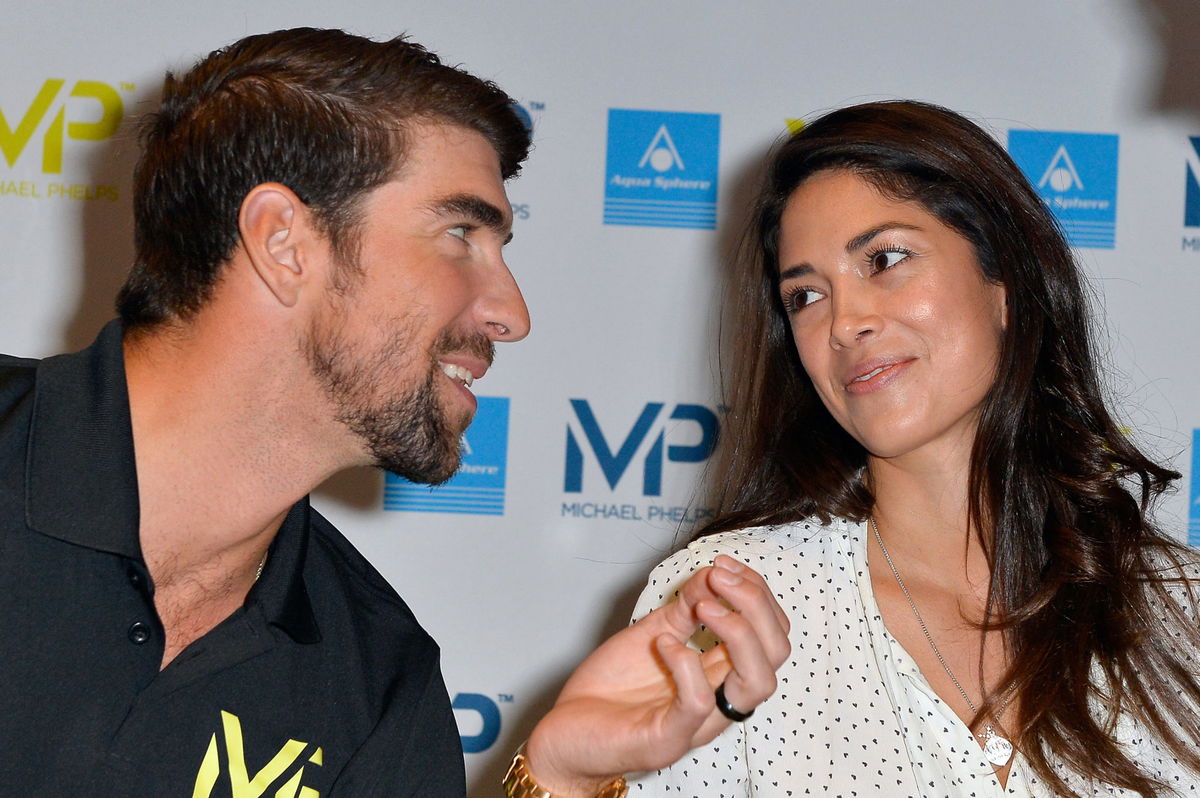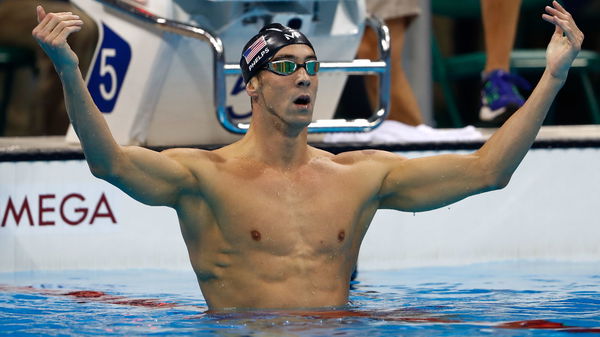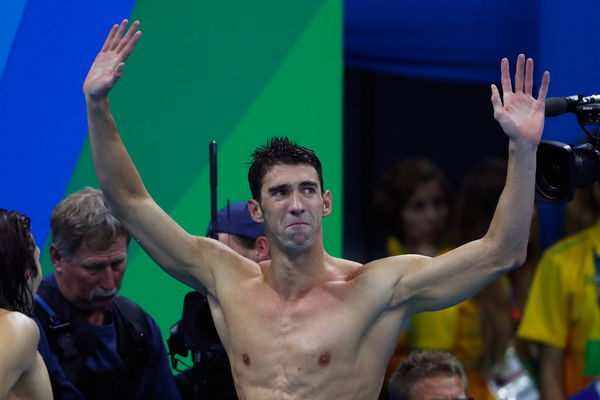
Getty
PARIS, FRANCE – FEBRUARY 16: Michael Phelps and his wife Nicole Johnson pose as he signs autographs after a press conference for the launch of his brand MP on February 16, 2017 in Paris, France. (Photo by Aurelien Meunier/Getty Images)

Getty
PARIS, FRANCE – FEBRUARY 16: Michael Phelps and his wife Nicole Johnson pose as he signs autographs after a press conference for the launch of his brand MP on February 16, 2017 in Paris, France. (Photo by Aurelien Meunier/Getty Images)
With his eight medals in Athens, eight in Beijing, six in London, to six in Rio, Michael Phelps has racked up a total of 28 Olympic medals, 23 of which are gold. This makes him the most decorated Olympian of all time, a good 10 medals ahead of Larisa Latynina’s runner-up spot at 18.
Watch What’s Trending Now!
ADVERTISEMENT
But if you ask his wife, Nicole Johnson Phelps, that isn’t where Michael Phelps’ legacy lies. The culmination of his skill and fame has given a separate conversation with much more weight than a mere tally of medals.
ADVERTISEMENT
Nicole Johnson Phelps on her husband’s legacy
It has been public knowledge for years that the swimming legend suffered from depression and mental health issues. In 2015, when Sports Illustrated did a cover story on Michael Phelps, detailing his struggles with mental health and suicidal ideation. It was then that his wife understood how Phelps would impact the industry.
Nicole Johnson Phelps had an interview with Experience Life magazine where she relayed her perspective. “That’s when he opened up,” she said. “That was our first forward motion toward changing the way people see mental health.”
ADVERTISEMENT

Imago
Michael Phelps celebrates winning his 20th gold medal after a razor-thin victory in the men’s 200-meter butterfly at Rio’s Summer Olympics on Tuesday.
In 2014, Phelps was arrested for driving under the influence, and the incident made headlines, bringing to light his battle with debilitating depression. Gradually, Phelps became more public about his issues, gaining traction as a spokesperson for the stigma surrounding mental health among athletes.
Top Stories
Chiefs Announce Relocation From Missouri to Kansas to Build New Stadium

Kansas City Mayor Sends Strong Message to Clark Hunt After Chiefs Confirm Arrowhead Exit

Is Philip Rivers Catholic or Mormon? Religion, Ethnicity & More About Colts QB

Blue Jays Confirmed to Land MLB’s “Big Fish” After Mark Shapiro Fires Bold Message to Clubhouse, per Insider

LIV Golf Issues Statement as Pro Announces Shock Retirement After Getting Relegated

DK Metcalf Awaits Huge Punishment From NFL After Controversial Incident vs Detroit Lions

ADVERTISEMENT
His wife began advocating for mental health awareness as well, under the flag of the Michael Phelps Foundation (MPF). She is sure that this is where the true impact of her husband’s achievements lies. “This is where we are going to make the biggest difference,” she shared. “I know that Michael’s legacy, at the end of the day, is in the mental-health field.”
Michael Phelps as a mental health advocate
Ever since the swimmer retired in 2016, he has spent much of his time discussing his struggle with depression. “I can go back to 2004 and say that was when I first experienced it,” he told the Olympic Channel. “I suffered from post-Olympic depression pretty bad.”
ADVERTISEMENT
He had a similar experience after the Beijing Olympics in 2008, and it wasn’t until 2014 that he could understand what he was dealing with. He shares his problems because he hopes he can help others going through something similar feel a little less alone.

Getty
RIO DE JANEIRO, BRAZIL – AUGUST 13: Michael Phelps of the United States thanks the crowd after winning gold in the Men’s 4 x 100m Medley Relay Final on Day 8 of the Rio 2016 Olympic Games at the Olympic Aquatics Stadium on August 13, 2016 in Rio de Janeiro, Brazil. (Photo by Clive Rose/Getty Images)
“Hopefully, I can save a life. I can help somebody else because I know that the feelings that I have, I had, what I go through every single day, every single week, every single month. I know I’m not alone and I understand that for me it’s OK to not be OK,” he said.
ADVERTISEMENT
Michael Phelps isn’t the only big-name athlete that has opened up on mental health. With stars like Naomi Osaka and Simone Biles also speaking out on the issue, it has taken center stage in the world of sports. Many athletes, inspired by their honesty, have come forward and shared their own experiences.
ADVERTISEMENT
ADVERTISEMENT
ADVERTISEMENT

